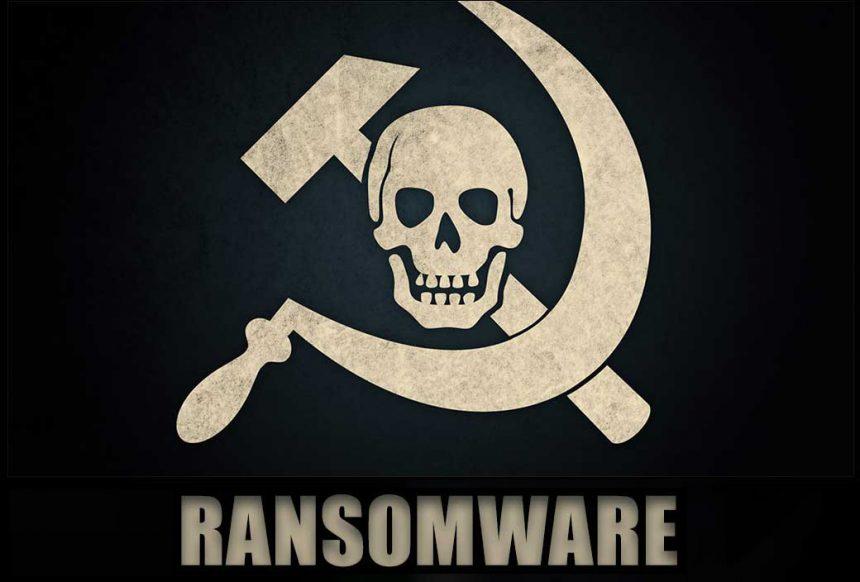Ransomware attacks continue to plague individuals and organizations globally, and Luck (MedusaLocker) ransomware is among the latest examples of this malicious trend. This guide delves into the workings of Luck (MedusaLocker), its devastating effects, and effective measures for its removal and prevention.
Download SpyHunter Now & Scan Your Computer For Free!
Remove this and any other malicious threats to your system by scanning your computer with SpyHunter now! It’s FREE!
What is Luck (MedusaLocker) Ransomware?
Luck (MedusaLocker) is a highly sophisticated ransomware strain designed to encrypt data on an infected system and demand a ransom for decryption. It is a variant of the MedusaLocker family and typically appends a unique extension, such as .luck_06, to encrypted files. The numeric portion of this extension may vary between different variants of the malware.
For instance, a file named document.jpg becomes document.jpg.luck_06 upon encryption. After completing the encryption process, Luck (MedusaLocker) creates and displays a ransom note in an HTML file named How_to_back_files.html.
Key Features of Luck (MedusaLocker)
- Encryption Mechanism: Uses advanced RSA and AES cryptographic algorithms to ensure encrypted files cannot be accessed without a decryption key.
- Data Exfiltration: Often accompanies encryption with data theft, giving attackers additional leverage to pressure victims into paying the ransom.
- Ransom Note: Warns victims against using third-party decryption tools or modifying the encrypted files, as these actions may result in permanent data loss.
- Ransom Amount: The demand increases if victims fail to contact the attackers within 72 hours. Non-payment could lead to the stolen data being published or sold.
How Luck (MedusaLocker) Ransomware Works
Once the ransomware infiltrates a system, it executes the following actions:
- File Encryption: All accessible files are encrypted, rendering them unusable.
- Extension Modification: Encrypted files are appended with a distinctive
.luck_06extension. - Ransom Note Deployment: Drops the ransom note instructing victims to contact the attackers at recovery012012@onionmail.org for further instructions.
- Network Propagation: May spread laterally across networks and infect connected systems.
How Does Luck (MedusaLocker) Infect Devices?
Luck (MedusaLocker) relies on various techniques to infiltrate systems. These include:
- Phishing Emails: Malicious attachments or links disguised as legitimate content.
- Exploit Kits: Leveraging software vulnerabilities to execute payloads.
- Fake Software Updates: Trick users into downloading ransomware under the guise of updates.
- Malicious Advertisements: Redirects users to exploit-laden websites.
- Pirated Software: Distributes ransomware via illegal software downloads.
- Backdoor Trojans: Installs the ransomware through previously infiltrated malware.
Removing Luck (MedusaLocker) Ransomware
Download SpyHunter Now & Scan Your Computer For Free!
Remove this and any other malicious threats to your system by scanning your computer with SpyHunter now! It’s FREE!
Eliminating Luck (MedusaLocker) requires a systematic approach to prevent further damage and secure the system. Follow these steps:
- Disconnect from the Network: Isolate the infected system immediately to prevent the ransomware from spreading to other devices on the network.
- Boot into Safe Mode
- Restart your computer and press the appropriate key (e.g., F8 or Shift + Restart) to access the boot options menu.
- Select Safe Mode with Networking.
- Use a Reliable Anti-Malware Tool
- Install a reputable anti-malware program like SpyHunter.
- Perform a full system scan to detect and remove the ransomware.
- Remove Malicious Files and Registry Entries
- Open the Task Manager (Ctrl + Shift + Esc) and end suspicious processes.
- Use the Registry Editor (type
regeditin the Windows search bar) to delete ransomware-related entries. Be cautious when editing the registry.
- Restore Files from Backup: If you have a secure backup stored on an external drive or remote server, restore your files. Ensure the system is malware-free before reconnecting the backup.
Preventing Ransomware Infections
Prevention is key to avoiding the devastating effects of ransomware like Luck (MedusaLocker). Implement these measures:
- Regular Backups
- Maintain multiple backups in secure locations, such as external drives or cloud storage.
- Ensure backups are disconnected from the system when not in use.
- Keep Software Updated: Regularly update your operating system and applications to patch vulnerabilities.
- Install Robust Security Software: Use reliable anti-malware tools with real-time protection to guard against ransomware attacks.
- Be Wary of Phishing Attempts
- Avoid opening email attachments or clicking on links from unknown sources.
- Verify the sender’s legitimacy before interacting with email content.
- Disable Macros in Office Documents: Prevent malicious macros from executing by disabling them in Microsoft Office applications.
- Use Strong Passwords and Two-Factor Authentication (2FA): Secure your accounts with unique, complex passwords and enable 2FA wherever possible.
- Limit User Privileges: Grant administrative privileges only when necessary to minimize the impact of potential infections.
- Educate Users: Train employees and family members to recognize and avoid potential cyber threats.
Why Paying the Ransom is Not Recommended
Paying the ransom does not guarantee data recovery. Cybercriminals often fail to provide decryption keys even after receiving payment. Additionally, complying with their demands encourages further criminal activities. Instead, focus on recovery methods and preventive measures to secure your systems.
Conclusion
Luck (MedusaLocker) ransomware is a dangerous malware variant capable of causing significant data loss and financial damage. While removal of the ransomware is possible, restoring encrypted files often requires backups. Preventive measures such as maintaining regular backups, using robust security software, and exercising caution online are critical to safeguarding against ransomware attacks.
By staying informed and vigilant, you can protect yourself from the devastating consequences of ransomware infections like Luck (MedusaLocker).
Download SpyHunter Now & Scan Your Computer For Free!
Remove this and any other malicious threats to your system by scanning your computer with SpyHunter now! It’s FREE!
Text presented in the ransom message:
YOUR PERSONAL ID:
–
/!\ YOUR COMPANY NETWORK HAS BEEN PENETRATED /!\
All your important files have been encrypted!
Your files are safe! Only modified. (RSA+AES)
ANY ATTEMPT TO RESTORE YOUR FILES WITH THIRD-PARTY SOFTWARE
WILL PERMANENTLY CORRUPT IT.
DO NOT MODIFY ENCRYPTED FILES.
DO NOT RENAME ENCRYPTED FILES.
No software available on internet can help you. We are the only ones able to
solve your problem.
We gathered highly confidential/personal data. These data are currently stored on
a private server. This server will be immediately destroyed after your payment.
If you decide to not pay, we will release your data to public or re-seller.
So you can expect your data to be publicly available in the near future..
We only seek money and our goal is not to damage your reputation or prevent
your business from running.
You will can send us 2-3 non-important files and we will decrypt it for free
to prove we are able to give your files back.
Contact us for price and get decryption software.
email:
recovery012012@onionmail.org
TOX ID:
3D741563254E906DE5512FAE8E7F53FB453672297C2F159BE22736CBCE347F4E892207593F09
* To contact us, create a new free email account on the site: protonmail.com
IF YOU DON’T CONTACT US WITHIN 72 HOURS, PRICE WILL BE HIGHER.





